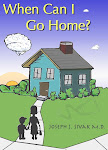they have been around for a long time, the original developed in the early 1950's and that was Thorazine. A whole host of medications followed, the so-called typical antipsychotics or first generation antipsychotics. more common ones still frequently used (but not as much as 10 years ago) in psychiatry are Haldol, Prolixin, Navane, Stelazine, Loxapine, Mellaril. They treat psychotics symptoms such as hallucinations, (seeing things that are not there, or hearing voices of people that are not there) and delusions, false beliefs not grounded in reality (eg. the NSA planted a micochip in my brain and is monitoring me or I have a special power in that I can predict the future, or I am Jesus Christ) Delusions can be different types, paranoid or grandiose for example. Some people act on there delusions or hallucinations. Sometimes hallucinations tell people to hurt or kill themselves or hurt other people. The antipsychotics attenuate and sometimes take these symptoms away completely.These kind of symptoms are seen in people suffering from schizophrenia, schizoaffective disorder, and sometimes severe bipolar disorder or severe unipolar depression.
The first generation antipsychotics also have a host of potential side effects.
The most severe one in the sense of it being permanent even if you stop the medicine is called tardive dyskinesia. This is a movement disorder, that involves repetitive stereotypical movements, that are not controllable. Such as lip smacking, crossing and uncrossing ones legs, or finger tapping. The movement disorder doe not keep the person from sleeping and often it is more distressing to watch than for the person afflicted with it.
A second generation of meds was developed in the late 1980's and through current day. That is the so called atypical antipsychotics or second generation antipsychotics, these meds are much less likely and virtually some not at all likely to cause tardive dyskinesia.
They are generally much better tolerated by a person than first generation meds. They tend to cause much less apathy and bluntedness. In fact they often improve those symptoms which are seen in people suffering with schizophrenia. So you see another problem with the first generation meds was that some of the side effects, sluggishness, apathy for example were also symptoms of the illness of schizophrenia.
The second generation meds, main problem which class action law firms have jumped on suing the drug companies for is the association of these meds with the possible development of type II diabetes. That becomes a hotbed of political and economic controversy. It is often poorly understood by other areas of medical specialties outside of psychiatry.The second generation antipsychotics are Clozaril, Risperidone, Zyprexa, Seroquel, Abilify, Invega, and most recently Saphris. They were considered antipsychotics but most of them have been approved and indicated by the FDA for various phases of bipolar disorders. So they are not just considered second generation antipsychotics anymore.
The government body the FDA puts out a warning on these meds but does not pull them off the market, the warning is called an ASSOCIATION of these meds with the possible development of diabetes. Accordingly proper periodic blood monitoring is required, to check a fasting blood glucose for example. Its a quandary because type Ii diabetes is growing so fast (on or off these meds), but it has created much opportunity for some lawyers. It is sort of like suing McDonald's for spilling there hot coffee on yourself and burning yourself, or suing the fats food chain because you got fat and developed diabetes from eating french fries. It would be easy if these meds clearly caused diabetes and were considered unsafe then the government could just pull them off the market. The truth of the matter is these meds no matter how much we hate them or hate psychiatry have helped a lot of people and saved many lives. That part gets missed. And no it is not as simple as money changing hands with the government or the drug companies and there profits. If it was that simple things would be easier. and no doctors do not get kickbacks to prescribe. It is amazing how many people assume that. Don't you think with how vilified physicians actually are in society it would be a little more apparent if it was that simple?
The truth of the matter is at this point these types of meds are the best we have right now, and most doctors that prescribe them are not doing it for fun or experimenting, they are actually trying to help their patients. How does that point constantly get missed? i know why it does but it would take a book to write about it.


















No comments:
Post a Comment